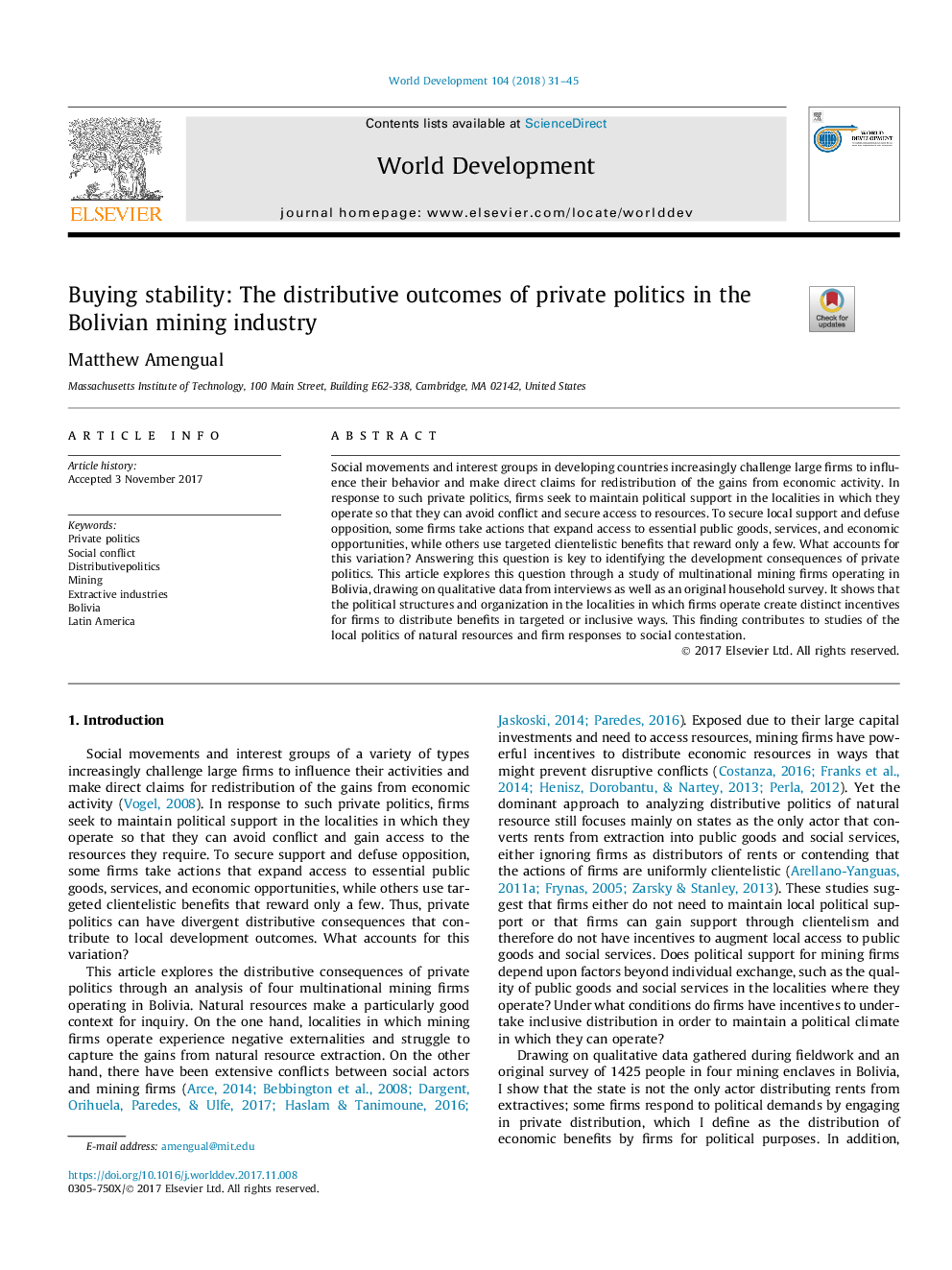| Article ID | Journal | Published Year | Pages | File Type |
|---|---|---|---|---|
| 7392011 | World Development | 2018 | 15 Pages |
Abstract
Social movements and interest groups in developing countries increasingly challenge large firms to influence their behavior and make direct claims for redistribution of the gains from economic activity. In response to such private politics, firms seek to maintain political support in the localities in which they operate so that they can avoid conflict and secure access to resources. To secure local support and defuse opposition, some firms take actions that expand access to essential public goods, services, and economic opportunities, while others use targeted clientelistic benefits that reward only a few. What accounts for this variation? Answering this question is key to identifying the development consequences of private politics. This article explores this question through a study of multinational mining firms operating in Bolivia, drawing on qualitative data from interviews as well as an original household survey. It shows that the political structures and organization in the localities in which firms operate create distinct incentives for firms to distribute benefits in targeted or inclusive ways. This finding contributes to studies of the local politics of natural resources and firm responses to social contestation.
Related Topics
Social Sciences and Humanities
Economics, Econometrics and Finance
Economics and Econometrics
Authors
Matthew Amengual,
